Pacific islanders join protest of Japan's release of radioactive wastewater into sea
Pacific islanders have voiced concern over Japan's controversial Fukushima radioactive wastewater discharge, alongside other worried regional countries, China in particular.
Solomon Islands Prime Minister Manasseh Sogavare issued a "strong statement against Japan's decision" on Friday, warning that the water release "has an impact on our people, ocean, economy, and livelihood."
There was a similar message in the Fijian capital Suva, with demonstrators carrying placards saying "Nuclear-free sea!" and "Pacific Lives Matter".
“Every South Pacific Island leader, we need to come against what Japan does in the South Pacific,” a protester at the rally said. “As an individual, I believe that’s not proper,” said another.
The decision to dump the wastewater was approved two years ago by the Japanese government and given the green light by the UN nuclear watchdog last month.
It allowed the discharge as one of the final steps in a dauntingly long and difficult process of decommissioning the Fukushima Daiichi nuclear power plant after it was destroyed following its reactors' meltdown due to a massive 9.0 magnitude earthquake and tsunami on March 11, 2011, which killed at least 20,000 people in northwestern Japan.
Tokyo Electric Power Company (TEPCO) started on Thursday dumping nuclear-contaminated water from the wrecked Fukushima nuclear power plant into the Pacific Ocean, prompting China to ban all Japanese seafood imports.
Beijing is "highly concerned about the risk of radioactive contamination brought by... Japan's food and agricultural products exported to China," a Chinese customs official said in a statement.
On Wednesday, China had warned Japan that it would take action if Japan's Fukushima nuclear plant operator TEPCO proceeded with its controversial decision, describing the move as risky “gambling.”
“The ocean sustains humanity. It is not a sewer for Japan’s nuclear-contaminated water. China strongly urges Japan to stop its wrongdoing, cancel the ocean discharge plan, communicate with neighboring countries with sincerity and goodwill, dispose of the nuclear-contaminated water in a responsible manner, and accept rigorous international oversight. China will take all steps necessary to protect the marine environment, ensure food safety and safeguard people’s life and health,” Wang Wenbin, spokesman for China’s Foreign Ministry, told reporters in Beijing.
The warning came as Beijing on Tuesday summoned the Japanese Ambassador to China, Hideo Tarumi, to urge Tokyo “to change its mind.”
“The Japanese side is gambling with the global marine environment and the health of all humankind by forcibly promoting the discharge of nuclear-contaminated water into the sea,” Vice Foreign Minister Sun Weidong told the Japanese envoy, media reported.
Meanwhile, Japanese protesters opposed the move, gathering in front of the Prime Minister's Office in Tokyo on Thursday.
Protesters held banners and chanted slogans against releasing the radioactive wastewater into the Pacific Ocean.
"I think that the release of contaminated water will surely lead to a collapse. Besides, I think it is absolutely possible to say that really contaminated fish will be pulled up, since such a large amount of contaminated water and contaminants must have accumulated," said Miwako Kitamura, the organizer of the demonstration.
"So, I would absolutely like to seek with the people of Fukushima to fight to have the government withdraw the plan while protecting the fishermen's livelihood and other things," she added.
A few dozen protesters also gathered in front of Tepco's headquarters in Tokyo holding signs reading "Don't throw contaminated water into the sea!"
"The Fukushima nuclear disaster is not over. This time only around 1 percent of the water will be released," 71-year-old Jun Iizuka, who attended the protest, told Reuters. "From now on, we will keep fighting for a long time to stop the long-term discharge of contaminated water."
Also, Japanese fishing groups, hit with years of reputational damage from radiation fears, still oppose the plan.
"All we want is to be able to continue fishing," the head of the Japan Fisheries Co-operative said in a statement that touched on the "mounting anxiety" of the community.
The Koreas, following the path of China, Hong Kong, and Macau, have announced their own ban starting Thursday, which covers Japanese seafood imports from 10 regions.
South Korea said the import ban on Fukushima fisheries and food products will stay in place until public concerns are eased.
In Hong Kong, Jacay Shum, a 73-year-old activist, held up a picture portraying IAEA head Rafael Grossi as the devil.
"Japan's actions in discharging contaminated water are very irresponsible, illegal, and immoral," said Shum, who was among a group of about 100 marchers. "No one can prove that the nuclear waste and materials are safe. They are completely unsafe."
North Korea's foreign ministry demanded that the water discharge be immediately halted, calling it a "crime against humanity", state media reported.
Meanwhile, according to TEPCO test results released on Thursday, the water contained up to 63 becquerels of tritium per liter, below the World Health Organization drinking water limit of 10,000 becquerels per liter. A becquerel is a unit of radioactivity.
A statement released by the UN nuclear watchdog, IAEA, said its independent on-site analysis had confirmed the tritium concentration was far below the limit.
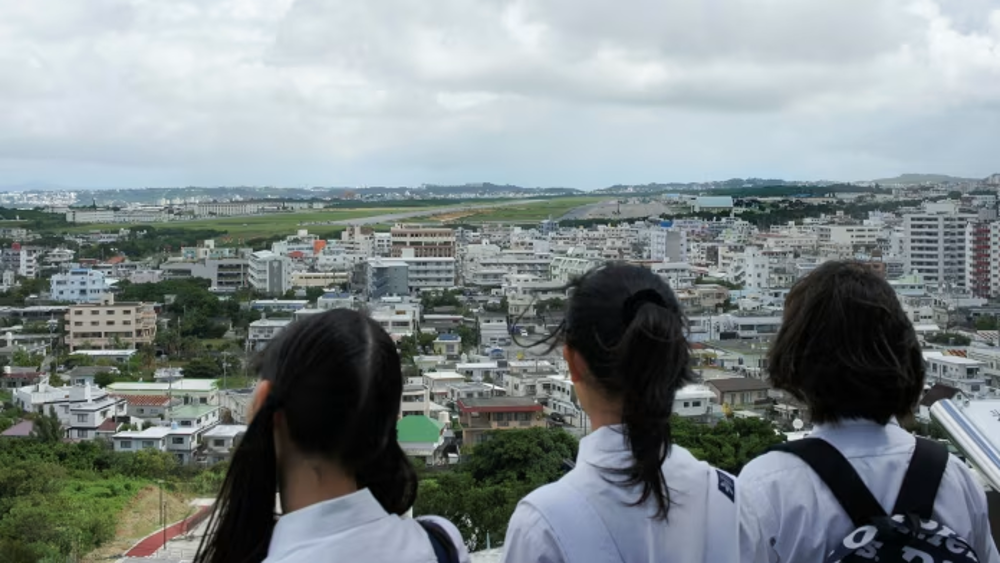
Two US marines accused of raping Japanese women in Okinawa

China deploys naval group in warning to US, Philippines over drills
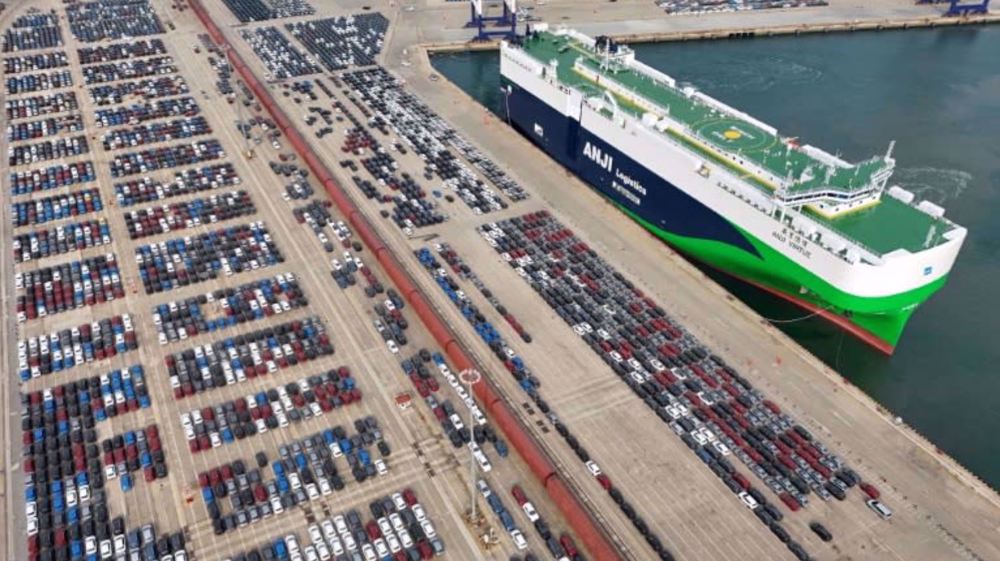
China ‘firmly’ opposes countries making trade agreements with US at its expense
VIDEO | Press TV's news headlines
Betar US: America's new face of Zionist terrorism and the darker rebirth of Kahanism
‘More serious than before’: Iran-US talks enter critical phase amid hope and caution
Pezeshkian’s visit to Baku heralds new order in South Caucasus
VIDEO | Eight killed, six injured after car rams into crowd at Vancouver Filipino festival
Keffiyeh-wearing Jewish woman assaulted by pro-Israel mob in New York
Hezbollah, Hamas, Islamic Jihad express solidarity with Iran after deadly port explosion
Pezeshkian: Iran ready to share achievements with African nations


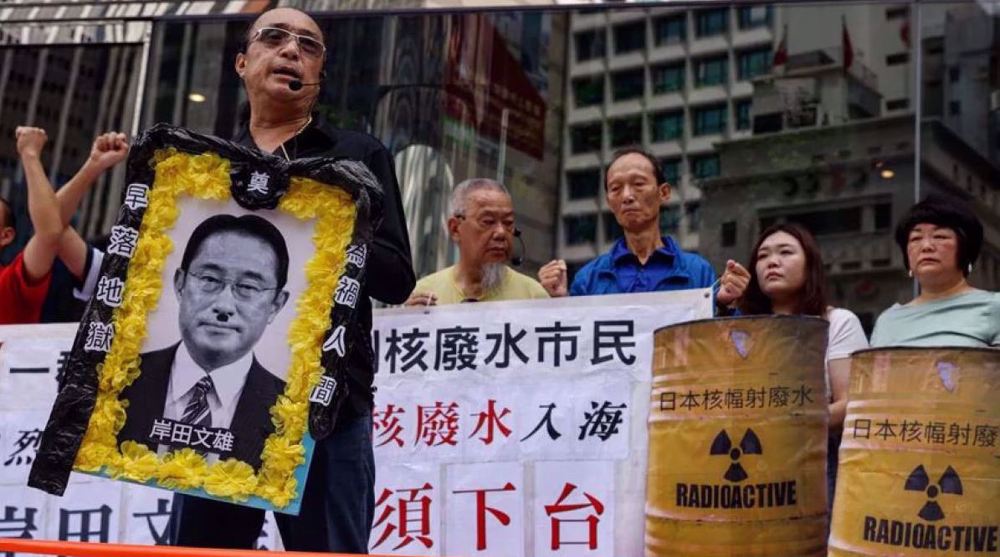



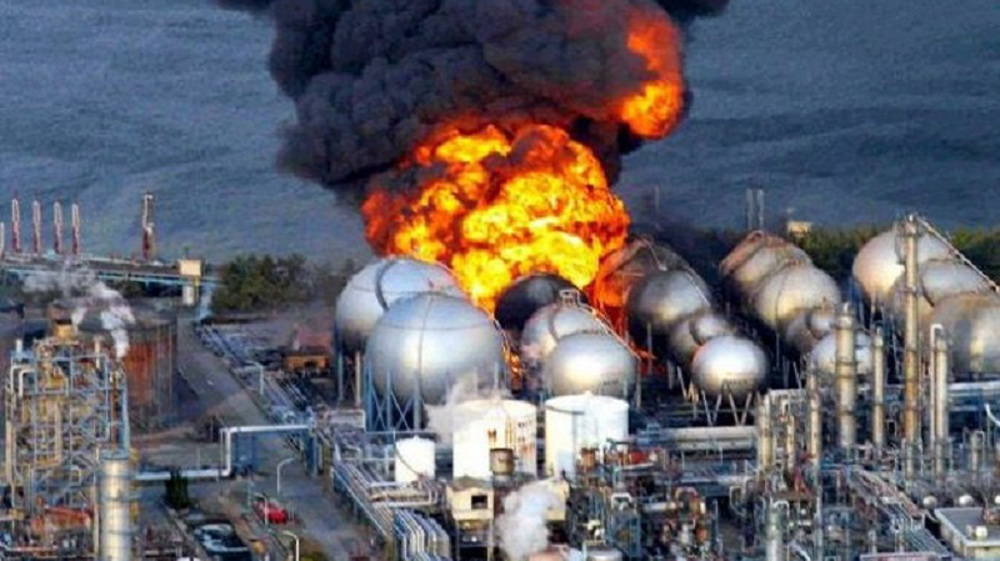
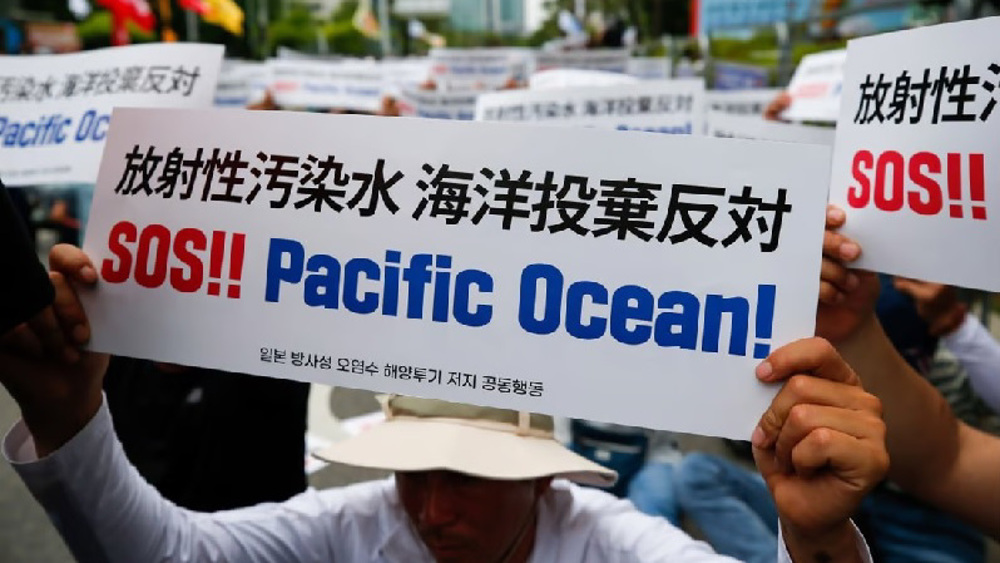

 This makes it easy to access the Press TV website
This makes it easy to access the Press TV website